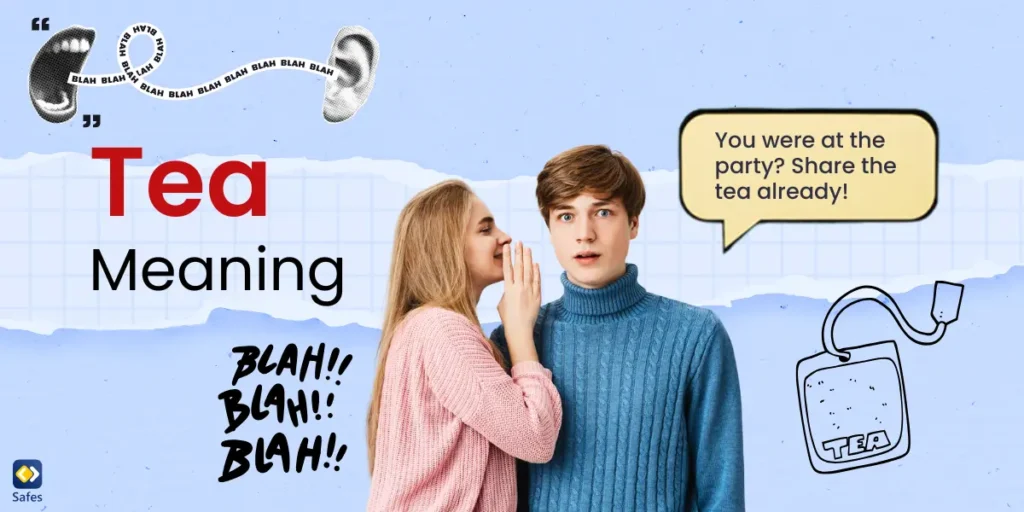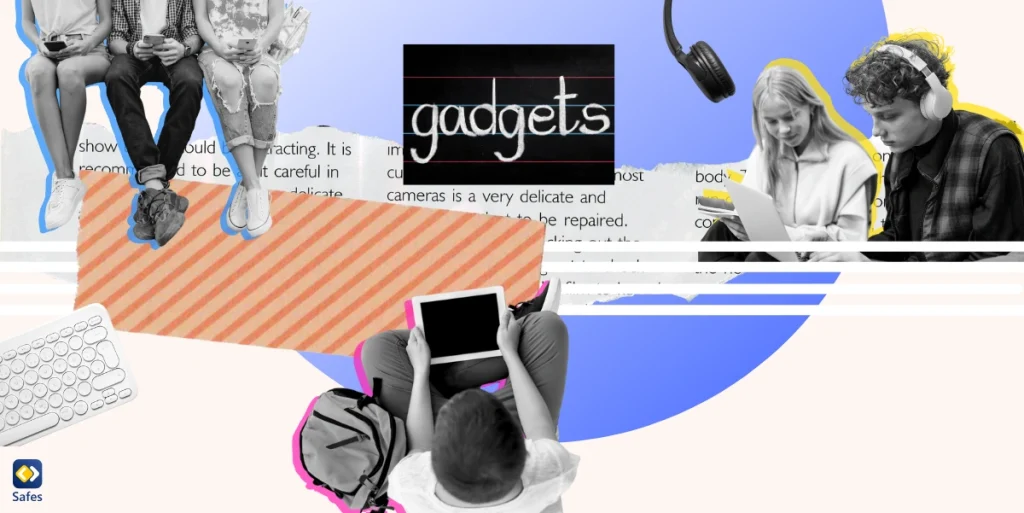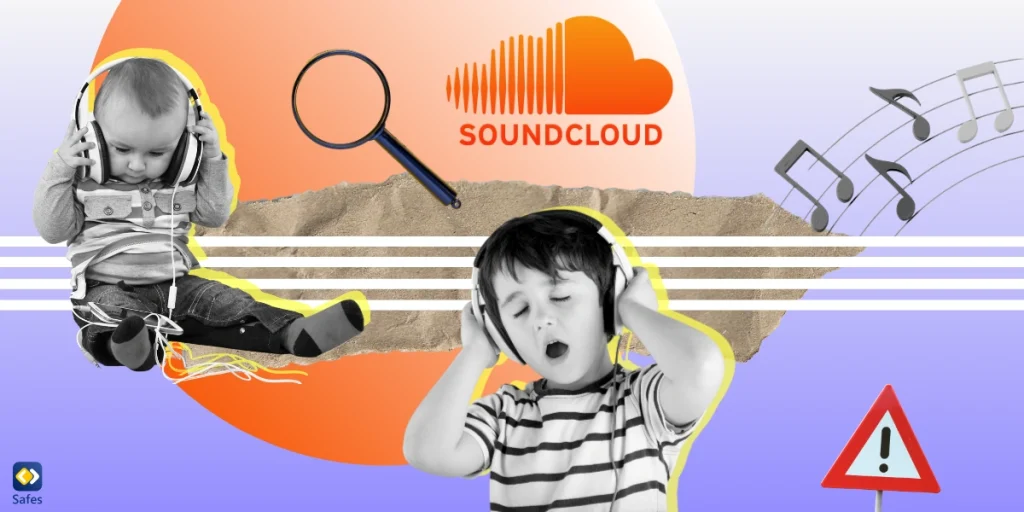Keeping up with your child’s digital lingo is like learning a new language! Words and phrases change fast, and if you’ve seen the word “tea” in a text or social post, you might be wondering what it really means. Don’t worry; this blog breaks it all down for you in Aeasy terms. We’ll explain tea meaning slang, give examples, and share safety tips to help you stay informed and protect your child online.
Download and Start Your Free Trial of the Safes Parental Control App
What Does Tea Mean in Texting?
In digital slang, “tea” means gossip, juicy news, or personal information. When someone says “spill the tea,” they’re asking for the latest drama or inside scoop. Teens and even younger kids often use this term while chatting online or texting.
But “tea” isn’t always used the same way. It can show up in different phrases, depending on the context. Here’s a breakdown of some common variations in 2025.
Clock That Tea Meaning
“Clock that tea” means someone just noticed some surprising or juicy information. If a teen says, “Clock that tea,” they’re usually pointing out gossip that just came to light.
Example:
“She finally unfollowed him on Insta? Clock that tea!”
Give Me the Tea Meaning
“Give me the tea” is a request for information, especially the dramatic kind. It’s like saying “Tell me everything!”
Example:
“You saw them together? Give me the tea!”
Body Tea Meaning
This is a newer and more specific phrase in 2025. “Body tea” refers to personal or physical changes, like someone’s appearance, style, or even health. It’s a way of complimenting someone’s body, meaning that they have an attractive body.
Example:
“Did you see her pics? That’s some body tea!”
Parent Tip: Watch for this phrase! It may lead to body image issues in children.
It can also be used as a way of online grooming.
Share the Tea Meaning
“Share the tea” is another way of saying “spill the beans” or “don’t keep the drama to yourself.”
Example:
“You were at the party? Share the tea already!”

How It’s Used in Real Digital Interactions
Teens use “tea” casually in group chats, DMs, and on platforms like TikTok or Instagram. It’s often harmless gossip among friends, but it can sometimes include:
- Personal rumors
- TMI (too much information)
- Subtle bullying or exclusion
Imagine a group chat where one kid shares screenshots of another’s private messages; that’s “sharing tea,” but in a way that crosses privacy lines.
What Parents Should Know: Even though it might sound playful, using “tea” to spread personal info or make fun of someone can turn into cyberbullying.
Platform-Specific Usage
The slang word “tea” pops up across various platforms, and its meaning stays fairly consistent, but the tone can shift.
- TikTok: Videos labeled “Spilling tea” often include storytime, personal drama, or celebrity gossip. These are very popular among teens.
- Instagram & Threads: Used in captions or comments when people want followers to talk or react.
- Snapchat: Used in private messages or group snaps with friends.
- Discord: Found in chat servers, especially among gamers or fan groups, where drama is part of the fun.
As a parent, you should monitor how often and in what tone “tea” is being used. If it’s repeated with sarcasm, emojis, or shady comments, it might hint at social tension.
Risk Level Indicator (Parent Alert System)
| Phrase | Risk Level | Why |
| “Give me the tea” | 🟢 Green (Harmless everyday slang) | Casual curiosity or fun talk. |
| “Clock that tea” | 🟡 Yellow (Context matters; can be misused) | Could involve drama or targeting someone. |
| “Body tea” | 🔴 Red (Potential safety concerns) | Body-shaming, unhealthy beauty talk, or online grooming. |
| “Share the tea” | 🟡 Yellow (Context matters; can be misused) | Might involve private info or peer pressure. |
Trend Tracker: Is It Still Relevant?
🔥 Trending (widely used now)
Yes! “Tea” is still trending in 2025 and remains a popular slang term among teens and preteens. While some older slang terms fade, “tea” continues to evolve and stay relevant, especially with new variations like “body tea” emerging.
![]()
Online Safety Considerations for Parents
Here are a few ways to keep your child safe in digital spaces where slang like “tea” is common:
- Ask your child what “tea” means to them. Use it as a conversation starter.
- Teach them not to share other people’s information without permission, even if it feels like harmless gossip.
- If “body tea” comes up often, check in on their self-image and peer interactions.
- Apps that monitor language use or send alerts for high-risk words can be very helpful.
Final Word
Slang like “tea” might seem harmless at first, but it can sometimes be a red flag for deeper issues like gossip, bullying, or body shaming. In this blog post, we covered everything you need to know about tea meaning in chat. As a parent, you should stay informed, which gives you the power to step in early and support your child in a healthy way.
That’s where Safes can help. Safes is a powerful parental control app designed to give you insight into your child’s digital world without invading their privacy. It lets you:
- Monitor risky language
- Set screen time limits
- Track app usage
- Get alerts for online safety issues
If you’ve used default settings on devices, like iPhone parental controls, you’ll have a wonderful experience with Safe, as it gives you more access to helpful features. You can download Safes today on Android and iOS.
Your Child’s Online Safety Starts Here
Every parent today needs a solution to manage screen time and keep their child safe online.
Without the right tools, digital risks and excessive screen time can impact children's well-being. Safes helps parents set healthy boundaries, monitor activity, and protect kids from online dangers—all with an easy-to-use app.
Take control of your child’s digital world. Learn more about Safes or download the app to start your free trial today!




